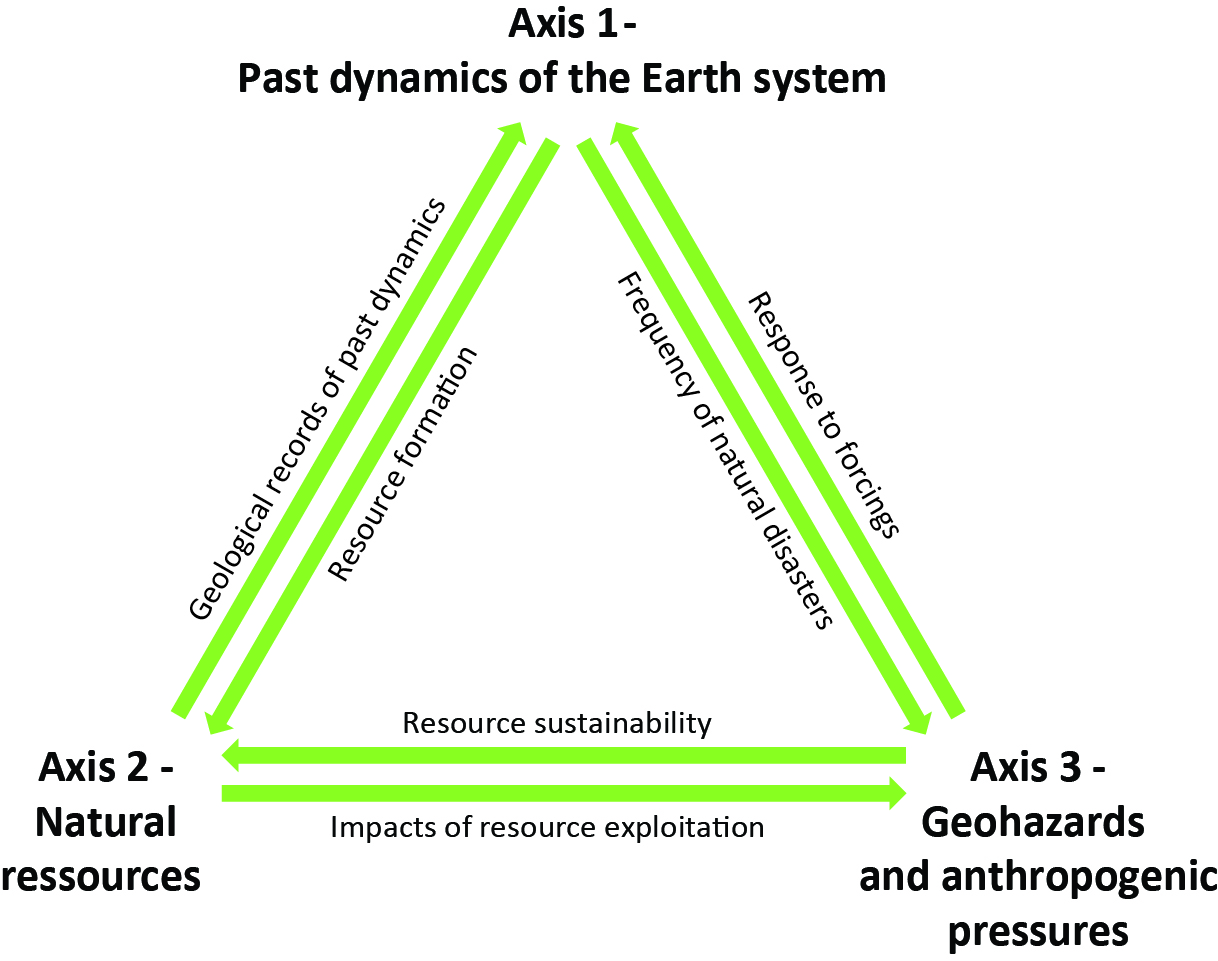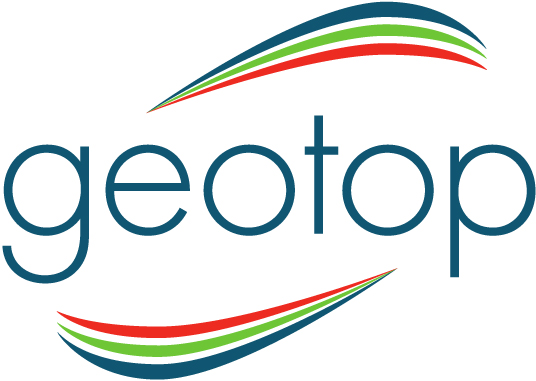Research axes and themes
Geotop is a strategic cluster bringing together human and analytical resources in the field of geosciences. It provides a top-level research and training environment that aims at addressing immediate or fundamental issues on the state of planet Earth and short- and long-term changes in response to natural and anthropogenic forcing. Research issues include risks and natural resources, climate change and biogeochemical cycles. Such issues require multidisciplinary methodological approaches, and the combining of infrastructure, expertise, skills and resources from several Québec institutions. Research topics developed by Geotop’s members fall into three broad integrated axes:

Past dynamics of the Earth system
The present state of the Earth is the result of billions of years of gelogical processes and interactions between its reservoirs (hydrosphere, atmosphere, geosphere). A thorough knowledge of these processes is thus essential to understand the present state of our planet and better apprehend its future evolution, especially regarding issues impacting humans (distribution of resources, frequency of natural disasters, climate change, etc.). This axis aims at reconstructing the evolution of the Earth system during key time periods during which various processes 1) influenced the formation of metalliferous provinces (Archean, > 2,500 million years – Ma), 2) affected the conditions at the Earth's surface and triggered major climatic crises (Proterozoic, 2500-500 Ma), or established the current climate system marked by glacial periods and by anthropic activities (Quaternary, 2.5 Ma to the present).
Natural resources
Natural resources are essential to the growth and development of any nation. Québec is particularly rich in mineral and water resources. Mineral resources are an economic asset, but increasing their exploitation without jeopardizing its sustainability requires that we improve our knowledge regarding deposit genesis models. The availability of water resources and their resilience in the face of climate change and pollution are emerging issues in a province that hosts a significant part of the planet’s drinking water and wetland resources. This axis aims at studying processes controlling the genesis and longevity of natural resources (metals, water, energy) for sustainable exploration and exploitation purposes. These studies are based on original approaches developed at Geotop, particularly in experimental metallogeny and groundwater dating.
Natural hazards and anthropogenic pressures
Disturbances in the current state of the planet, whether natural or man-made, can have a significant impact on societies. Geotop focuses its studies on geological processes that can lead to increased risks for the populations, in particular earthquakes, and certain pressures on the environment caused by anthropic activities (e.g., urban pollution, climate change). Several of these studies benefit from the results obtained in projects from axes 1 and 2. For example, a precise knowledge of the groundwater renewal capacity (axis 2, themes 2 and 3) is essential for assessing the impact of pollution on the quality of the water resource. The results of this axis' projects contribute to properly informing decision-makers and developing environmental policies (land use, safe resource exploitation).

